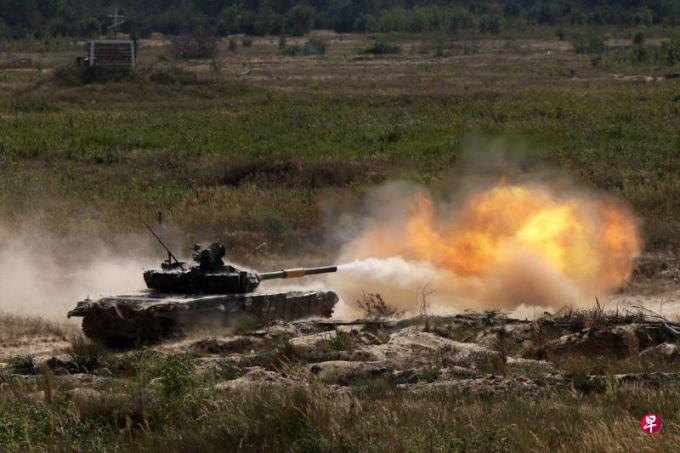
The war between Russia and Ukraine has erupted for about 20 months, and neither of the fighting parties cannot be decided.Recently, Stoltenberg, Secretary -General of the North Atlantic Treaty Organization, and Mark Milly, Chief of Staff of the US Army, have pointed out that the Russian and Ukraine War will not end quickly and must prepare for long -term war.
Although Russia and Ukraine showed intention to start ceasefire and peaceful negotiations, the preset conditions of both parties were difficult to accept each other.Ukrainian President Zelei pointed out that Russia must first withdraw the troops from Ukraine's territory, including Crimea and Wudong (Lugusk, Donetzk, Hermuson and Zapolo) before negotiationsThe foundation; Russian President Putin stated that Ukraine and its allies must first accept the fact that territorial changes are accepted.
On the one hand, both sides express their willingness to negotiate, but on the other hand, they must decide on the battlefield to increase the negotiation chips.However, both sides have not been able to overwhelm each other on the battlefield.The war was stuck, the loss of economy and life was heavy, and the warriors and their allies began to feel tired.
The United States and European countries are the largest military aid countries in Ukraine, but public opinion surveys show that with the Russian and Ukraine war, Ukraine's support is falling, especially in increasing economic funding and military supply.
The latest survey entrusted by the United States Cable TV shows that 55%of the respondents believe that the US Congress should not approve additional military aid to Ukraine, and 51%of the respondents said that the United States has given Ukraine enough assistance.In comparison, 62%of the respondents should do more in the survey at the end of February 2022, and the United States should do more in assisting Ukraine.
On the other hand, 56%of the respondents were worried that the Russia -Ukraine War threatened to US national security, which was much lower than 72%surveyed in February 2022.
Although the US President Biden has repeatedly assured Zeelianzki, the United States will support Ukraine from beginning to end, but there are differences in the U.S. parties on the Ukrainian issue.
Zeleiski recently visited the United States to fight for military and economic assistance. Although he was treated by President Bayeng, the Speaker of the House of Representatives McCarthy refused to let him give a speech again in Congress to avoid coaxing of Republican members.In addition, the Temporary Demandment Act passed by the two houses of the United States recently passed in order to prevent the government from stopping, and it has not been included in Ukraine's assistance facilities.
The US Congress has approved the total aid for Ukraine for more than $ 100 billion, but the record has not made much progress.Some Republican members claim that they will no longer "blank checks" for Ukraine.The United States will hold a presidential election in 2024. If the Republicans win, the pattern of the Russian and Ukraine war may have a major turning point.This may also be the reason why Putin insisted on constant fire, hoping to change, waiting for the political changes that may occur in the United States next year.
At the same time, the advantage of Russia's volume means that if Ukraine cannot obtain a decisive military prince in the short term, it may eventually be forced to cut the ground for long -term consumption.
Russia's invasion of Ukraine has united the unity of European countries and also injected new life into NATO.However, after the Russian and Ukraine war, and some EU countries and Ukraine recently had a dispute over the import of grain imports, the differences between European countries on the issue of military aid in Ukraine have also begun to be publicized.
After Russia withdrew from the Black Sea Food Agreement in July this year, the European Union and the United Nations opened up a number of land transportation channels passing through Central and Eastern Europe, which caused the national farm product market along the route to be impacted.In order to protect their farmers, Eastern European countries such as Poland, Hungary, and Slovakia have restricted some of Ukraine's grain imports, causing Ukraine dissatisfaction, and filed lawsuits to the World Trade Organization.
Zeleizki described at the New York UN General Assembly that the food import restrictions on Eastern European countries were "political drama", causing Poland to dissatisfy.Polish Prime Minister Moravitz claims that he no longer provides weapons for Ukraine.Although the Polish government clarified the next day that the previously agreed weapon delivery will be completed as planned, the dispute between the two countries will be shadowed by Ukraine's military aid.
TheThe Russian and Ukraine War led to the energy crisis of Europe, aggravated the burden on the people's lives, and promoted the mood of anti -military aid Ukraine and anti -economic sanctions.A few days ago, the party led by former Prime Minister Slovakia victory in the election.He said to the supporters in the campaign: "We will not send a bullet to Ukraine from the state treasury."
Ukraine's conflict in Russia and Ukraine, the military reserve commitment from European and American countries.However, European and American countries have their own internal economic and political considerations.Russia and Ukraine have not been able to achieve an overwhelming victory so far. The war of war has made the warriors and military aid countries began to feel tired, and it may have unexpected results.
Internationally politically, maintaining and respecting the integrity of national territory is regarded as the principles of sacred inviolability.In the war in Russia, Ukraine stood at the high point of moral system.However, the security of small countries cannot rely on the call of foreign aid and morality, but must build its own defense forces to avoid becoming victims of the law of the jungle.At the same time, before the fire point is ignited, it is necessary to resolve disputes through diplomatic channels and avoid letting contradictions upgrade to military conflicts.


